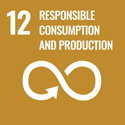Responsible Sourcing
Operating businesses that provide a wide range of products around the world, the Sansha Electric Manufacturing Group seeks to gain its suppliers’ understanding of and agreement to compliance with laws, regulations and social norms, considerations regarding human rights and industrial health and safety, the non-use of conflict minerals, environmental considerations and other responsibilities to society. We will conduct sustainable procurement activities through our supply chain. The Group assesses and selects its suppliers impartially in accordance with its Supplier Selection Policy. In addition, we have formulated the Sansha Electric Manufacturing Group Conflict Minerals Response Policy. It expressly states that the Group, from a humanitarian perspective, will not use conflict minerals (tin, tantalum, tungsten and gold) produced through inhuman acts in the Democratic Republic of Congo and its surrounding areas.
Procurement Policy
- We will observe laws, ordinances, social norms and equivalence and place importance on human rights and the environment.
- We will offer fair transaction opportunities to suppliers.
- We will carry out procurement activities based on mutual understanding and relationships of trust with suppliers.
Selection policy for procurement suppliers
- Our suppliers must observe laws, ordinances, social norms and equivalence and place importance on human rights and the environment.
- Our suppliers must have a sound financial position and information management systems.
- Our suppliers must supply materials and services with an appropriate quality, price and delivery lead time.
- Our suppliers must have the ability to ensure stable supply and flexibly respond to changes in supply and demand.
- Our suppliers must conduct value analysis (VA) and value engineering (VE) activities* to achieve mutual prosperity.
- Our suppliers must carry out risk management activities, such as business continuity planning, under normal circumstances to hold a capacity to continue supplying even in unexpected disaster or other extreme situations.
- *
- Value analysis (VA):Activities reducing the cost of mass-produced products throughout the entire value chain
Value engineering (VE):Activities thinking about the maximization of value from the process of product development (consideration of design)
Use of Conflict-Free Minerals
The Group has drawn up the Sansha Electric Manufacturing Group Conflict Minerals Response Policy. From a humanitarian point of view, we will not use any conflict minerals, such as tin, tantalum, tungsten or gold, that are produced using inhumane practices in the Democratic Republic of the Congo and the surrounding region.
Sansha Electric Manufacturing Group Conflict Minerals Response Policy
The Group prohibits the use of conflict minerals (tin, tantalum, tungsten and gold) mined from conflicts in and around the Democratic Republic of Congo and its neighbouring areas, and from inhumane acts such as trafficking, slavery, forced labour, child labour, abuse and war crimes.
- The supply chain is properly managed in accordance with the Organisation for Economic Co-operation and Development (OECD) Conflict Minerals Due Diligence Guidance.
- The Conflict Minerals Reporting Template (CMRT) published by the Responsible Minerals Initiative (RMI) is used to conduct supply chain research.
- In the future, if a conflict minerals smelter 'audit programme' (RMAP) or other programme development establishes a procurement method that completely eliminates conflict minerals, procurement transactions will be conducted accordingly.
- Not all minerals from the Democratic Republic of Congo and neighbouring areas will be used, but those that have been traded legitimately and are not involved in conflicts in the region.
17 December 2018.
SANSHA ELECTRIC Manufacturing Co., LTD.

